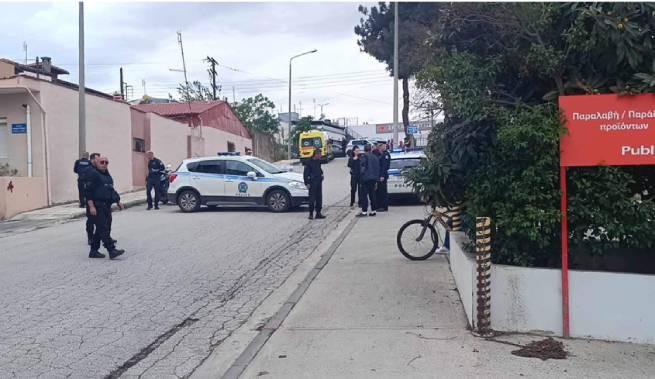Created by AI
The ENA Institute for Alternative Politics conducted the study, collecting primary material reflecting trends, and the interpretation of the data obtained reveals phenomena that characterize living conditions in Greece today.
What feelings prevail among the inhabitants of Greece, the most ordinary citizens, today? What is the perception of quality of life? Is there enough disposable income? How “expensive” are roofing and energy? How are education and healthcare assessed? How are government support measures assessed? Is saving possible, and how many people resort to loans for “essential expenses”? Is it possible to take a vacation?
Using these questions as the main pillars, the ENA Institute for Alternative Politics (Ινστιτούτο Εναλλακτικών Πολιτικών) major annual national social surveycontinuing a research project begun at the end of 2022 with the aim of creating a time series that will allow a comparative depiction of the results and their evolution over time.
Initial comments highlighting the need for this study include studying the attitudes and perceptions of citizens regarding their daily lives and quality of life. “Everyday” issues that affect families, workers and society at large have been transformed into research questions and are one of the Institute's many tools for the holistic approach it takes to develop targeted, applicable policy proposals.
I. Emotions
As the corresponding results show, negative emotions predominate: disappointment (50%) and anger (38%), while only the fourth and sixth options are optimism (15%) and hope (13%), respectively. Compared to the corresponding survey conducted in December 2022, it is important that the feeling of disappointment today increased, that is, worsened, by 9 points (then 41%), and the feeling of hope decreased by 4 points (then).
II. Quality of life and main problems today
Rated as worsened (43%) and suffocating/pressive (30%), and even compared to the previous survey, it is interesting that a new category has been added to the current survey, the answer “worsened” beats by a large margin – the second “suffocating/pressive” reaction that dominated at the time.
The most important issue in the country appears to be inflation (70%), poor pay/working conditions (29%), and health/care services (29%). According to estimates, in a year the situation in the country will worsen (55%), remain the same (28%), and improve (15%).
The survey also tries to capture a sense of discomfort, often referred to in public debate as the conclusion that “the situation is getting worse.” 60% of respondents believe that their own generation has a more difficult time than their parents.
III. Working conditions
The atmosphere of dissatisfaction and suffocation continues in the world of work: 1/3 (33%) thought about leaving their job at least once during 2024. Workers are not satisfied with what is offered (42%) or does not correspond to their qualifications (36%), tiresome working conditions (20%), and no prospects for career growth (15%).
54% say they are dissatisfied and very dissatisfied with their salary, and only 15% are satisfied and very satisfied, percentages at the same level as the previous survey, which shows there is no sense of improvement. despite the nominal increase in wages, which is recorded in official statistics.
IV. State support measures
77% believe that the benefits issued in 2023 do not meet the needs of the population and 72% that they did not help in overcoming the situation that has developed in the country, in fact, at a time when high costs are the most serious problem facing citizens . Compared to last year's survey, which asked respondents to answer whether that period's (energy) subsidies helped their financial situation, this year's survey negative assessment increased (then 71%).
V. Cost of living and income adequacy
Another negative situation, continuing from the previous survey, concerns the relationship between the cost of living and the adequacy of income. In particular 73% do not save any moneywhich corresponds to the level of last year.
Among those who pay rent, 80% think rent is high compared to their income and in fact an increase of 10 points was recorded on the corresponding question in last year’s survey, which indicates need for additional interventions.
Moreover, since 92% of respondents believe energy cost expensive compared to their monthly net incomeand 75% believe that government policies (including color tariffs) are insufficient to combat the consequences of the energy crisis, the cost of energy seems rather “unaffordable” in relation to monthly income for the majority.
64% believe the energy transition will increase energy costs in the future.
VI. Public Policy Assessment
Most received a negative assessment education (88%), healthcare (87%), security (85%), social security (83%), economy and environment (out of 76) – little/totally ineffective. Tourism (55%) and foreign policy (41%) have the most positive assessments.
Trust in the national health system is another worrying indicator – 51% do not trust her:
- 66% say they are dissatisfied or very dissatisfied with the NHS, while only 10% are satisfied or very satisfied.
- 77% think (definitely yes and probably yes) that the price they pay for healthcare in Greece is high compared to their net monthly income.
- 58% are dissatisfied and very dissatisfied with the education system in Greece (public/private education and universities).
- Among those with children, 84% think (probably and definitely yes) that the cost of education in Greece is high.
- 49% disagree and 45% agree with the creation of private universities in Greece on a tuition basis.
VII. Free time and vacation
48% did not go on vacation in the summer of 2023, a slightly reduced percentage, that is, improved compared to last year’s survey, but still every second respondent said it was impossible to go on vacation in the summer.
From the above it follows that today in Greece there is a predominance of disappointment with material conditions and quality of life, and also mainly negative assessment of ongoing government policy. At the same time, there is dissatisfaction with key pillars of public life and organization, such as the National Health Service and public education, for which respondents report that the services they receive are not satisfactory. At the same time, it is believed that expenses are disproportionate to their income.
These conditions reflected in the study, when taken together with others carried out by ENA and Prorata in previous years and more recently, reflect more a broad trend of disintegration based on the material plane and developing into a broader crisis of public confidence in its institutions.







More Stories
The Holy Fire will arrive at Athens airport at 19:00
Be careful: no one is safe from a black widow bite (video)
Study: Women live longer, but also suffer more health problems than men